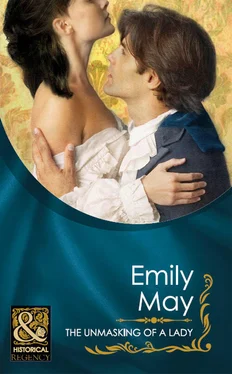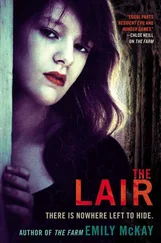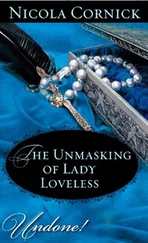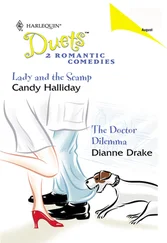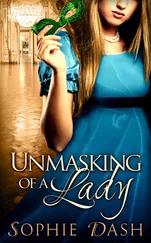‘Oh.’
‘Knightley brought his wife to England and they lived in Kent for a number of years—in reduced circumstances, I believe, but quite respectably—and then he died.’
‘How old was Bella?’
‘Five, or so.’ Adam shrugged again. ‘Knightley left his widow no income, so she approached Westcote, asking for help. The earl refused to let her set foot inside his house. He said he’d take the child, but not her.’
‘And she chose—’
‘She chose to keep her daughter.’
Grace moistened her lips. ‘What happened then?’
Adam looked at the silver platter and the last macaroon, stranded amid a sea of crumbs. ‘Mrs Knightley went to live with a friend of her husband’s, a nobleman. After a time, she became his mistress. By all accounts she was a very beautiful woman.’
‘And Bella?’
‘Was with her.’
Grace was silent for a moment. ‘But that’s not so bad, is it?’ she ventured. ‘Quite a number of married ladies have…have affaires and are still received everywhere.’
He glanced at her. Where had she learned that? ‘True, but Mrs Knightley had more than one protector over a number of years, and then, when her beauty failed her, she descended into London’s slums—taking her daughter with her.’
Grace plucked at a thread on the arm of the sofa. ‘Was Mrs Knightley a…a fallen woman in the slums?’
‘Yes,’ Adam said.
Grace bit her lip. She pulled the piece of thread free and wound it around her fingertip. ‘How long was Bella there?’ she asked, not looking at him.
‘Until her mother died. Three or four years, I think. She was twelve when Westcote took her in.’
‘Twelve?’ Grace said, glancing at him.
Adam nodded, remembering the twelve-year-old Grace had been: shy, eager, innocent.
‘How horrible for Bella,’ his sister said, her expression sober.
Adam shrugged. ‘Westcote educated her, made her heir to his fortune when his sons died without issue, launched her into society—’
‘No,’ Grace said. ‘I meant, how horrible for Bella to lose both her parents.’ She bit her lip and then smiled crookedly at him. ‘She was younger than I was when Mother died—and she didn’t have a brother.’
Adam had no memory of his own mother’s death—he’d been in swaddling clothes—but he had vivid recollection of Grace’s mother dying.
He looked at his sister, remembering the lost, dazed expression in her eyes, the bleakness in her face, her silent grief as she’d clung to him—and remembering, too, the surge of love he’d felt for her, the fierce need to protect her.
He cleared his throat. ‘No,’ he said. ‘Miss Knightley didn’t have a brother.’
Grace was silent for a moment. ‘I want to be friends with her.’
Adam rubbed his brow. ‘Grace,’ he said. ‘Miss Knightley isn’t good ton.’ He hesitated, reluctant to tell her. ‘In London she’s known as—’
‘Miss Smell O’Gutters. Yes, I know.’
Adam winced. Shame heated his face. Miss Smell O’Gutters. A name that could be laid at his door. No wonder she hates me.
‘I don’t care about that—or about any of it! Any more than Bella cares about what happened between me and Reginald.’
Adam stared at her helplessly. ‘Grace—’ One of his father’s favourite sayings pushed into his mouth: For heaven’s sake, try to behave as a St Just! He bit it back.
His sister stood, brushing crumbs from her lap. ‘Thank you for telling me about Bella.’ She bent and kissed his cheek. ‘I must go. Aunt Seraphina is taking me shopping.’ A smile, a swirl of sprigged muslin and golden ringlets, and she was gone.
Adam sat for a moment, staring at the empty doorway. He lifted a hand to his cheek and lightly rubbed where Grace had kissed him. What had happened to the sister he knew? The tractable, biddable girl? The girl who looked to him for guidance and acquiesced obediently to his wishes?
She’s growing up. She has a mind of her own.
It was a thought that filled him with foreboding. The world was suddenly a dangerous place, full of traps for innocent and headstrong young girls.
I need to find her a husband. Fast.
He muttered a curse beneath his breath. And then he ate the last of the macaroons.
That afternoon Arabella took her maid, Polly, her sketchbook and pencils, and the stolen ruby earrings, to Kensington Gardens. ‘Come back in three hours,’ she told the coachman.
She strolled with Polly for ten minutes and then exited the gardens. The carriage, with the Westcote coat of arms glinting within its widow’s lozenge, was nowhere in sight.
Polly hailed a hackney coach. ‘Rosemary Lane,’ she told the jarvey as they climbed inside.
Rosemary Lane was only a few miles from Kensington Gardens, but the slums of Whitechapel were as far from the grand squares of Mayfair as heaven was from hell. Arabella climbed down from the hackney and stepped over an open gutter, while Polly negotiated with the reluctant jarvey to return for them in an hour.
Their destination was just off Rosemary Lane, a narrow old-clothes shop with cracked and boarded-over windows. Hinges squealed as Arabella pushed the door open, a bell jangled harshly overhead, and the smell of musty, unwashed clothes invaded her nose. The scents of stale sweat, old perfume, spilled alcohol and tallow candles mingled sickeningly together. For a moment she had to pause, quelling the nausea that pushed up her throat.
The shop was dimly lit, full of mounds of used clothing. Coats hung from door mantels and hooks in the ceiling, their cuffs shiny with wear. Racks crowded the room: worn shirts and faded flannel waistcoats, stained trousers, frayed dresses and yellowing petticoats. Scuffed shoes and boots with cracked soles lay in piles on the floor.
Polly bustled in behind her and shut the door with another squeal of the hinges. ‘Sally,’ she called out. ‘It’s us.’
They changed in a small, cramped backroom, unbuttoning each other’s gowns and swiftly unlacing the short stays. Arabella hung her clothes—French muslin gown, linen chemise, cambric petticoat—carefully on hooks, and then stripped off her silk stockings and laid them over the back of a chair. The only item she didn’t remove was the pocket containing Lady Bicknell’s earrings, tied around her waist.
Having undressed, they dressed hurriedly again, in the clothes of the poor. Arabella pulled on a coarse chemise, a discoloured blue dress that was too large for her, rough woollen stockings, a battered pair of men’s lace-up boots, and a stained apron. She wrapped a ragged shawl around her head and shoulders. ‘Ready?’
Polly rolled up sleeves that were too long for her and reached for her own shawl. ‘Yes.’
They left the old-clothes shop through the back door, stepping into a dark, malodorous alley. Arabella linked her arm with Polly’s and set off briskly in the direction of Berner Street.
The scuttling rats, the stinking piles of refuse, the rivulets of foul water running down the middle of the streets, were familiar. They didn’t frighten her, but they brought back memories of the three years she’d lived in Whitechapel. The deeper they penetrated the warren of small, dark streets, the stronger the memories became. These were the sounds she remembered from her childhood: drunken shouts, the slurred singing of an inebriated woman, crying children, the yelp of a kicked dog.
‘Nice to be back,’ Polly said, tightening her grip on Arabella’s arm. ‘Ain’t it?’ She no longer spoke like a lady’s maid; her accent was pure Cockney.
Arabella glanced at her. Polly’s jaw was grimly clenched.
She felt a stab of shame. What had happened to Polly in these filthy streets was far worse than anything she’d experienced. She halted. ‘Polly, if you want to return to the shop—’
Читать дальше
